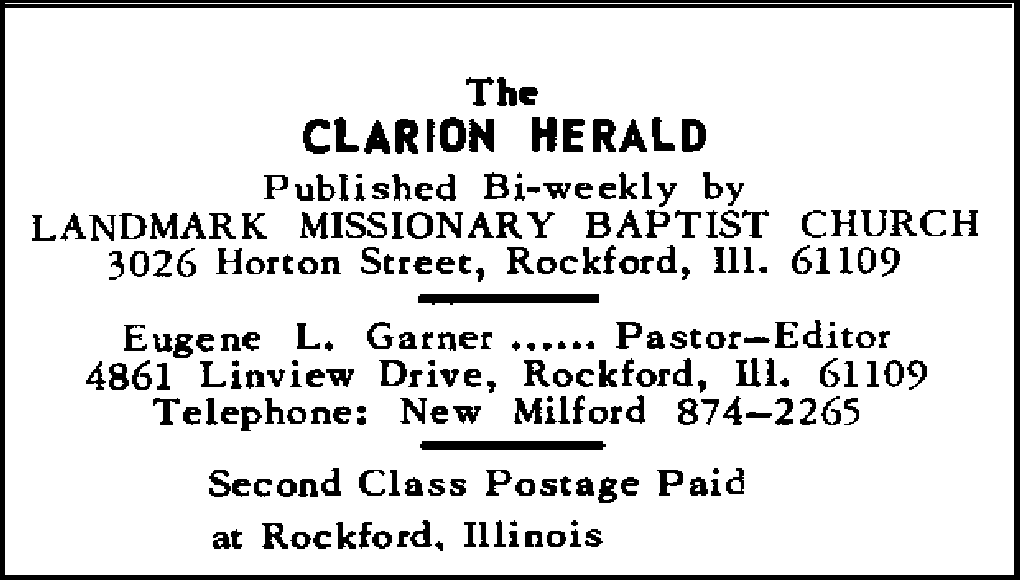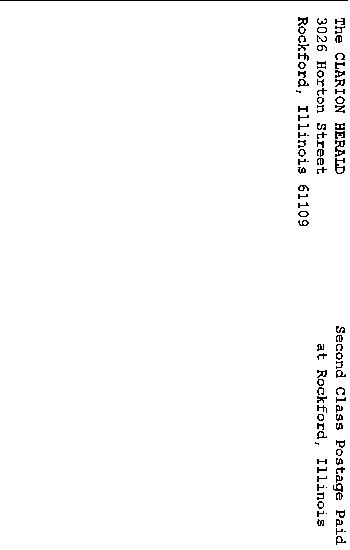
|
 |
 |
 |
|
 
|
|
|
QUESTIONING JESUS' UNIQUENESS
If all the facts were known there would be found an appalling number of people, insisting on their genuine adherence to Christianity, who have rejected, without serious investigation, the idea of a prophetic foreview of that which found its perfect fulfillment in the person of Jesus Christ. Others, outside the ranks of professed Christendom, pay their compliments to Jesus as the pre-eminent moralist of human history while rejecting the idea that the Old Testament prophets foretold the coming of this remarkable person.
Rejecting the idea of a divine superintendence over these prophetic utterances, it is insisted by the skeptical that any seeming congruency between biblical prophecy and the PERSON and works of Jesus Christ was purely coincidental. Nor does the rationalizing cease until another school, while insisting on the basic ignorance of Jesus' immediate disciples, inconsistently asserts that they cleverly formulated a series of prophetic fulfillments in the life of Jesus -- the better to bolster their new religion.
It is not difficult to discern
|
|
|
|
why the professed atheist is so repulsed by the prophetic idea -- for it is a strong argument in favor of a supernatural mind pervading the biblical record. But that it is so difficult for one, who professedly accepts and bows before the supernatural, to admit EVEN THE P0SSIBILITY of a divine superintendence over the writings of the ancient prophets is a bit difficult to understand. Is it because his concept of GOD is too small? Is it because he has carefully weighed all the evidence and found the Messianic idea, and its fulfillment in Jesus Christ, wanting? Or could it be that his ecumenical spirit requires the rejection of such a dogmatic position in favor of a more flexible one that will meet with the acceptance of his humanistic, anti-supernatural comrades?
The really important question is whether Jesus Christ BELIEVED HIMSELF to be the Messianic fulfiller of these Old Testament utterances. For one who places any credence at all in the Gospel records, as being an accurate record of the utterances of Jesus, the question is easily resolved. One reading of the Gospels will reveal, beyond the possibility of serious doubt, that He DID EMPHATICALLY consider and
|
|
|
|
|
Page - 2
declare Himself to be the Anointed One of Israel -- and that He unquestionably applied to Himself many of the Messianic passages of the Jewish scriptures.
Is it necessary to suggest that this fact creates an insoluble dilemma for such as would extol His goodness, his intellectual uniqueness, His moral perfection -- while rejecting His claim of Messiahship and deity? (In our next issue we will begin to examine some of those instances wherein He applied specific prophecies to Himself.) E.G.
IGNORANCE CONCERNING CHRIST
"He was in the world, and the world was made by him, and the world knew him not" .. "If thou knewest the gift of God, and who it is that saith to thee, Give me to drink; thou wouldest have asked of him, and he would have given thee living water"..."Ye neither know me nor my Father; if ye had known me,
|
|
|
|
ye would have known my Father also" ... "The man answered and said unto them, Why herein is a marvelous thing, that ye know not from whence he is, and yet he hath opened mine eyes" ... "Jesus saith unto him, Have I been so long time with you, and yet hast thou not known me, Phillip? he that hath seen me hath seen the Father; and how sayest thou then, Shew us the Father?".. .. "For they that dwell at Jerusalem, and their rulers, because they KNEW HIM NOT, nor yet the voices of the prophets which are read every sabbath day, they have fulfilled them in condemning him", (Jn. 1:10; 4:10; 8:19; 9:30; 14:9; Acts 13:27).
DO YOU KNOW HIM ??
LOPER'S DESIRE TO RETURN
A recent letter from the New Covenant MB Church, Chadbourn, N.C. asks that we announce the desire of missionary Charles D. Loper to return to the states in JUNE, of this year, for a visit.
A special fund for this purpose has been established at the
Wachovia Bank A Trust
P. 0. Box 392
Laurinburg, N.C. 20352
Should you desire to contribute to this fund, your checks may be made payable to: Charles D. Loper, Acct. No. 3-494-000. You may mail it directly to the bank at the above address.
***************
"Life's greatest failure is failing to be true to what one knows."
***************
"One seldom meets a man who fails at doing what he likes to do."
|
|
|
|
|
IDENTIFYING A NEW TESTAMENT CHURCH BY ITS BAPTISM ...... (Continued)
ITS AUTHORIZED ADMINISTRATOR
During the apostolic age, while the divine order for Christ's body was being perfected and clarified, the church was nurtured under the immediate direction of the Holy Spirit and the general direction of the apostles. Thus, it would be foolish to imagine that everything observed in the book of Acts was designed for our imitation, practice or experience.
The apostles of Jesus Christ exercised a peculiar and unique authority over the churches of the New Testament -- to the end of their lives. The authority directly committed to them was never withdrawn but it could not be passed on to others. As they had baptized, with His authorization, BEFORE His ascension, so might they do following His departure; but always in harmony with His over-all purpose -- to strengthen the developing church and to glorify His dear name. The Holy Spirit would both lead them in the perfect revelation of His "order" and then enable the churches to recognize and maintain that order,(Jn. 16:12-14).
Through the wise exercise of apostolic authority, error was discovered, exposed and corrected, (Acts 19:1-9). Paul obviously saw that the baptism of these men at Ephesus did not harmonize with God's order. It should be observed that He did NOT question the authenticity of their TRUST IN JESUS; but a baptism that leaves one in
|
|
|
|
Page - 3
ignorance of the Holy Spirit is obviously spurious. Though it should be noted that, in the book of Acts, there is NO MENTION of a specific bestowment of the Holy Spirit apart from an apostolic presence.
When the first great persecution arose, under Saul of Tarsus, the Jerusalem church was "scattered abroad" so that the Gospel message was proclaimed throughout Judea and Samaria. One specific example is given -- of Phillip's preaching "the kingdom of God" and baptizing "in the name of the Lord Jesus", (Acts 8). Hearing of this specific work, the apostles (who had been permitted to remain in Jerusalem) sent Peter and John to observe this ministry, (Acts 8:14). Approving the "order" that they found in Phillip' s work, they "prayed for them, that they might RECEIVE THE HOLY GHOST"; and when they laid their hands on them they received the Holy Spirit, (Acts 8:15, 17).
Is it too far-fetched to ASSUME that other churches were established during this period IN THIS SAME MANNER? It surely must not be thought necessary for the record of its origin to be written in the scriptures for a first century church to be regarded as scriptural! And we do know that there were churches in various areas of whose origin we have no SPECIFIC DETAILS recorded in the New Testament, (Gal. 1:21; Acts 9:26-31; 22:17, 21; 26:12-20; Acts 15:23, 41; 11:18-26).
This same Phillip, whose ministry
|
|
|
|
|
at Samaria had received the apostle's blessing, is directed by "the angel of the Lord" to minister to one particular individual -- an Ethiopian eunuch, (Acts 8:26-29). Following Phillip's witness, the eunuch desired to be baptized -- having recognized, from Phillip's preaching, that it was necessary to walk in the way of the Lord Jesus Christ. Assured that the eunuch believed with all his heart, Phillip immersed him in a pool of water -- following which the Spirit "caught away Phillip, that the eunuch saw him no more: and he went on his way rejoicing",
|
|
|
|
(Acts 8:37-39).
This Phillip appears to be one of the seven originally ordained as deacons in the Jerusalem church (Acts 6). In Acts 21:8 he is designated "the evangelist" -- a term that is roughly equivalent to our modern "missionary". There is, to this very day, thought to be nothing "irregular" or unique about a New Testament church authorizing one that she sends forth as a missionary to administer baptism "in her name" or BY HER AUTHORITY. Generally, however, the approval of baptism is to be given by a plurality of brethren.
Thus, at the house of Cornelius, Peter inquired of the brethren who had accompanied him from Joppa: "Can any man forbid water, that these should not be baptized, which have received the Holy Ghost as well as we?" (Acts lO:47). The brethren must be TAUGHT to judge in such matters. With their consent, Peter then "commanded them to be baptized in the name of the Lord", (Acts l0:48).
Generally, therefore, New Testament churches, for nineteen centuries past, have carefully followed the practice of baptizing individual believers on the authorization of the WHOLE BODY -- delegating this authority to an individual ONLY under such unique circumstances as that of permitting a missionary to baptize "in their (her) name" until he has been able to gather a sufficient number of Scripturally baptized believers as will permit their being organized into an independent congregation.
-- Eugene L. Garner
|
|
|
|
|
 |
 |
 |
|




